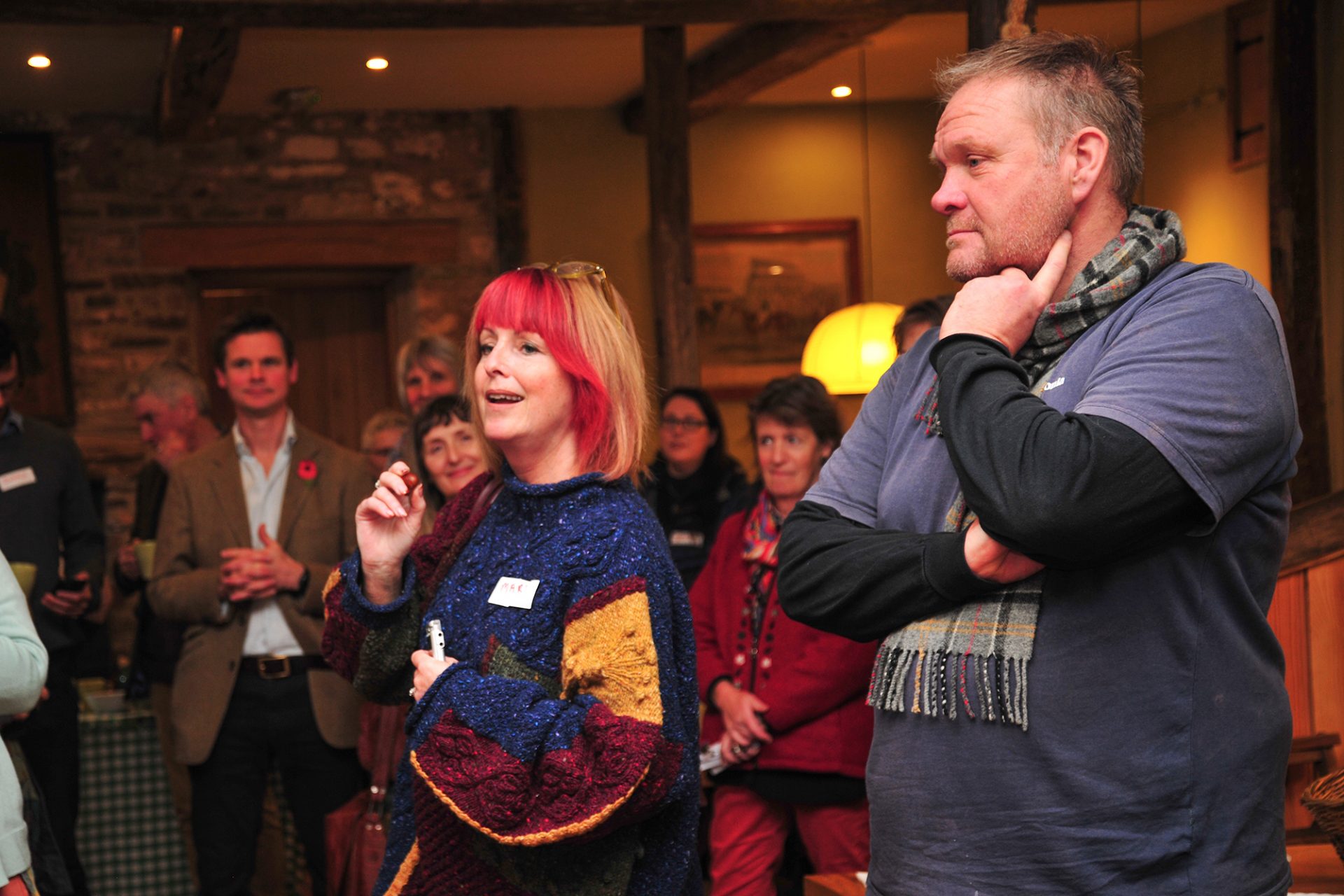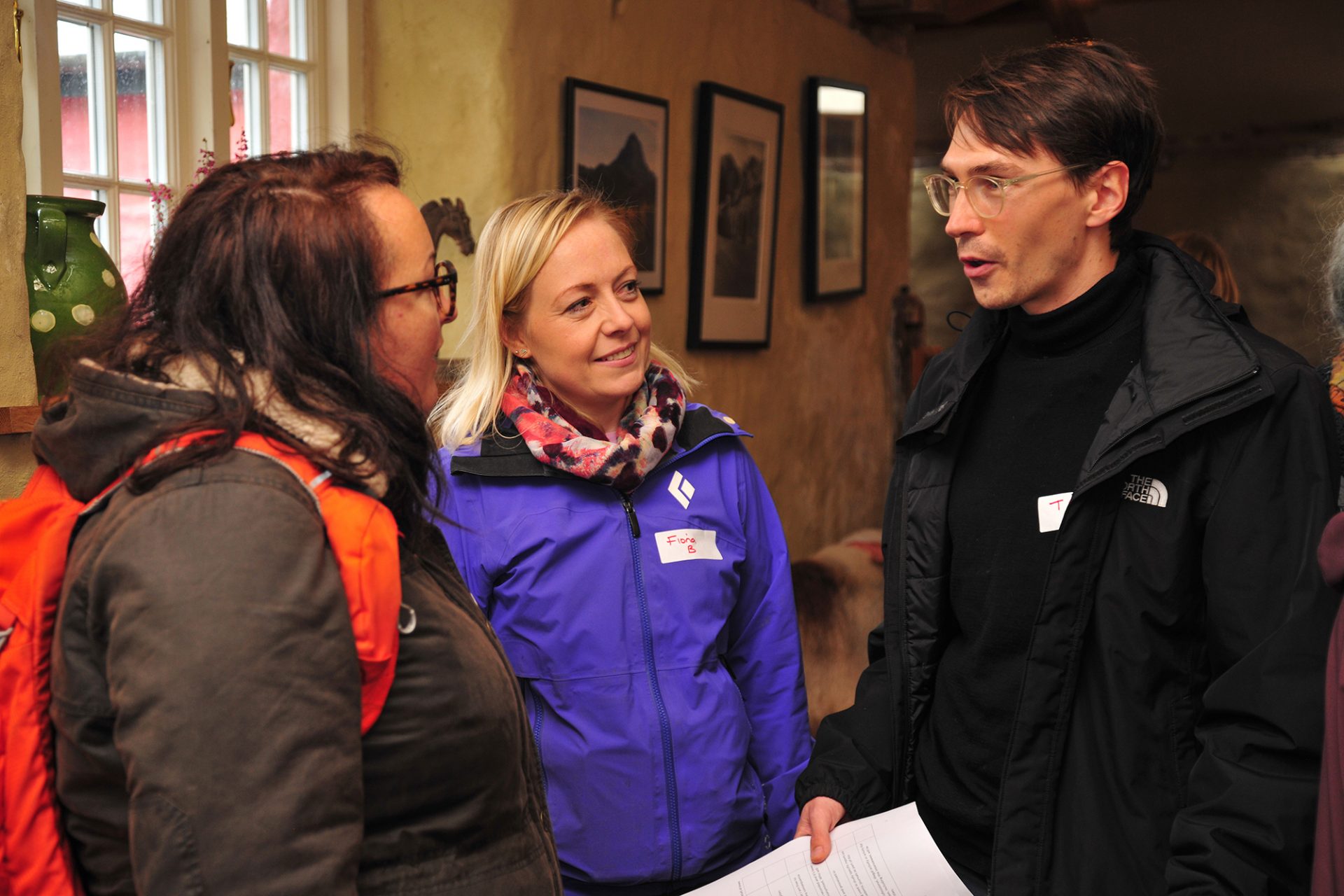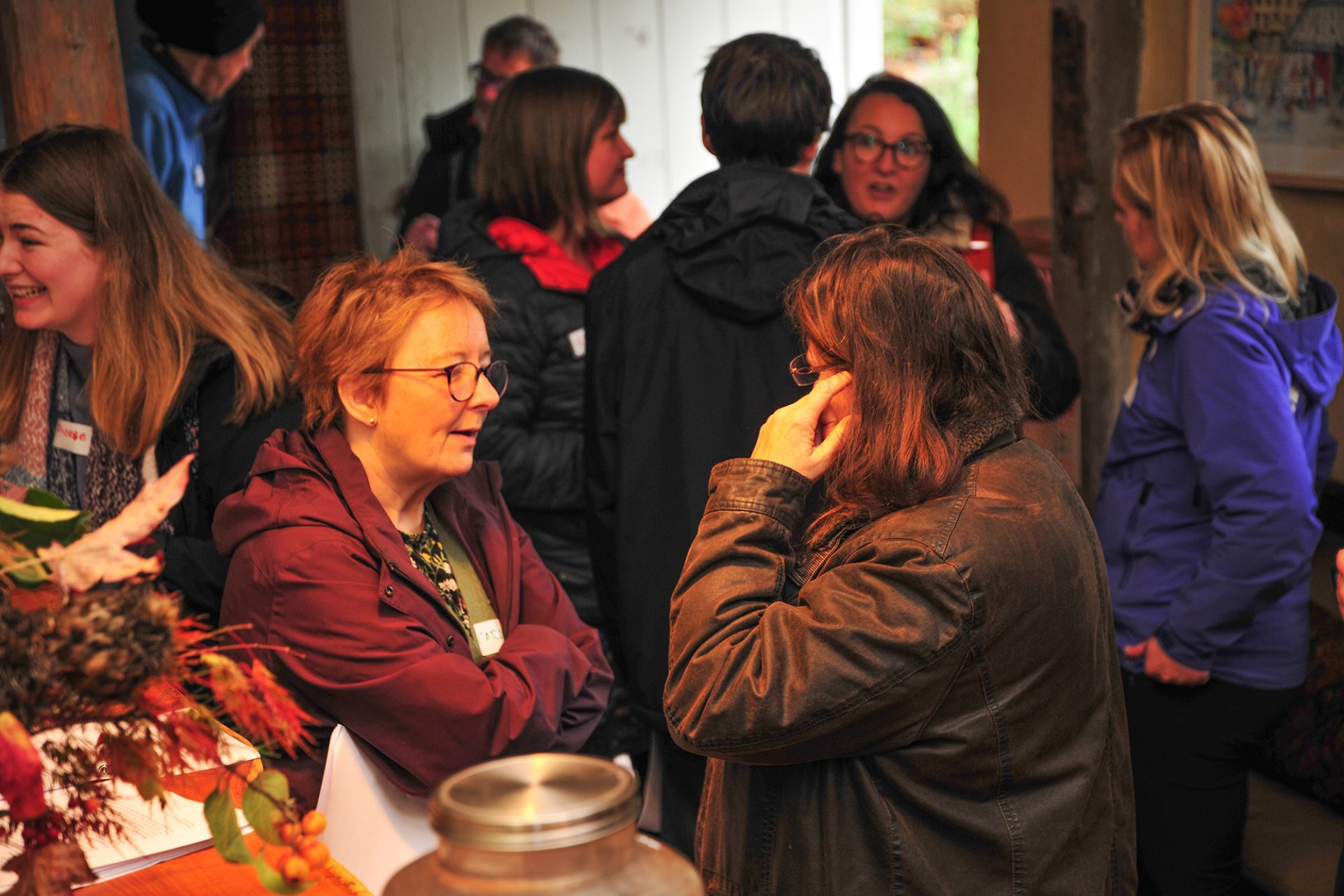What I really like about Fathom [...] is the fact that it’s promoting a completely different approach to health and wellbeing. I don’t just mean physical health, so physical, mental wellbeing, and spiritual wellbeing.

At the The Fathom Trust we have been exploring a soulful approach to health and wellbeing since 2020 based on craftsmanship, conservation and contemplation. Underpinning this is the belief that a deep context that frames, grounds and gives meaning to life can help to alleviate many of the ills of society.
In November 2022, Fathom received support from Cardiff University’s Clinical Innovation Accelerator to publicise the success of its Making Well green social prescribing programme, with results from an ethnographic and social return on investment report published on the Fathom website and on the Cardiff University website here: Making Well – a partnership for health and healing – News – Cardiff University.
We were fortunate to be hosted by the Hogg family at Penpont House in the Brecon Beacons, which offered us a wonderful setting in which to gather fifty artisans and academics, clinicians and conservationists, along with healthcare leaders and members of the local community who have participated in a Fathom programme. Dr Will Beharrell presented a film and overview of the Fathom Trust to which participants were asked to respond in their own occupational groups.
After a delicious lunch prepared by Mary Shuldham and served with the help of members of the Fathom community, another film was shown documenting the experiences of the some of the Making Well participants, who then formed a panel to discuss their experience and answer questions from the audience. Dr Holly Whiteley and Dr Lucy Sheehan presented their work on the Social Return on Investment and Ethnograpic report on Making Well and participants were then asked to respond for a second time, but in mixed groups.
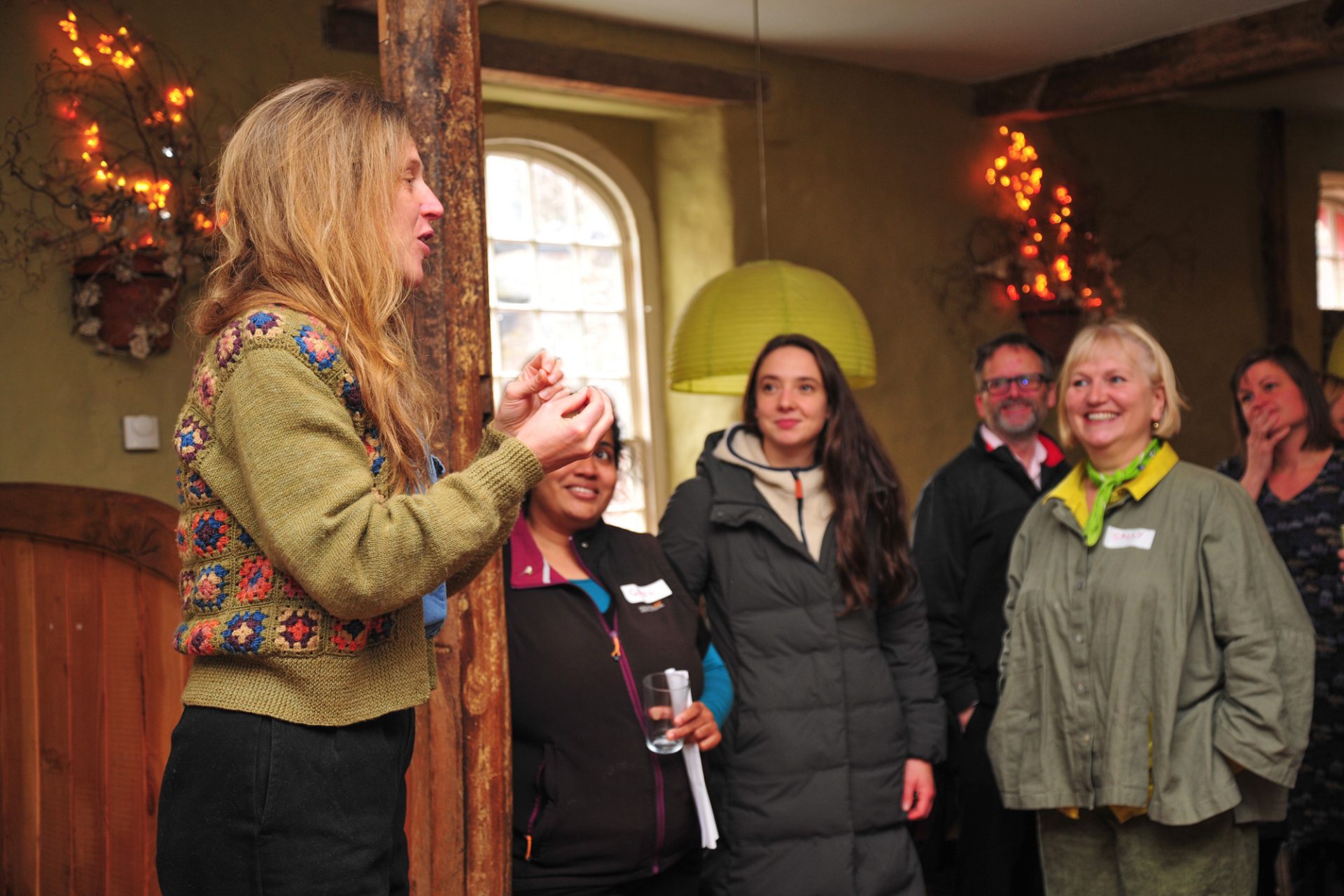
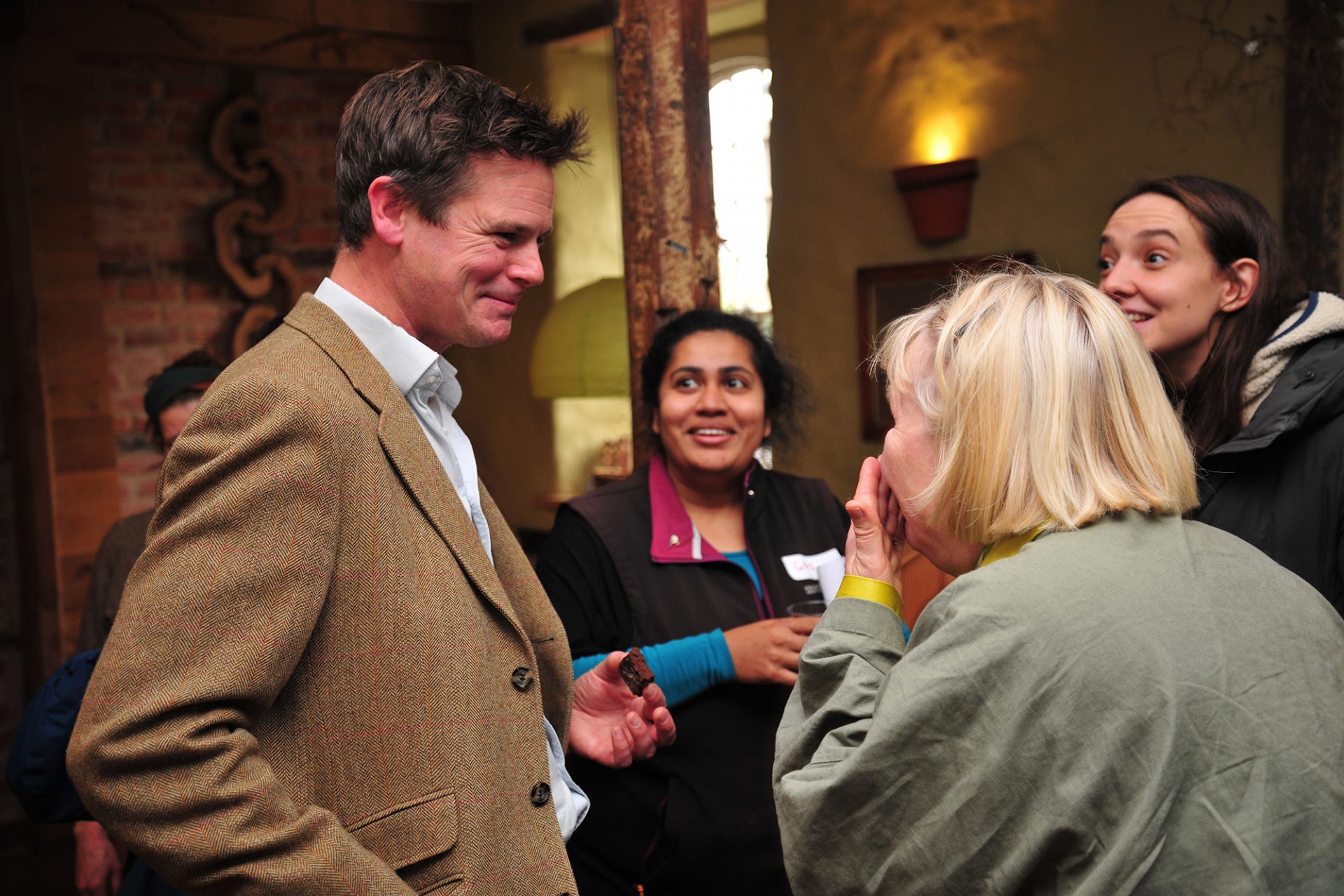
Professors Carolyn Wallace and Mary Lynch from the Welsh School of Social Prescribing Research (WSSPR) conducted these focus groups and used a ‘value’ questionnaire to reflect on this work. They asked three main questions:
Generally, participants valued simply coming together meaningfully with others. The theme of experiencing reconnection with a community appeared to be intrinsically linked to a second theme of reconnection with the self. One participant identified that they felt as though they were in a “different place” following remembrance of who they are, whilst another discussed that their cynicism “flew out of the window” during their introduction to the Fathom Trust. A further related theme was identified in participants who felt they had reconnected with nature. Several participants discussed the importance of the environment and nature to themselves and the wider population, both through the lens of helping them to heal following personal trauma, and in terms of caring about the environment more generally to provide stability to future generations. Being able to reconnect with nature through the Fathom Trust appeared to be a positive and valuable experience to these participants, and this linked into the holistic and non-medicalised approach of the initiative that was important for many.
Participants identified a number of ways in which the initiative may have changed the way that they consider their health and wellbeing needs, or the way that they act on them. As identified above, many participants reflected on their role in their communities as a result of their involvement with the Fathom Trust and this appeared to translate into the ways in which they considered health and wellbeing needs. One such theme was skill building and sharing within communities and how that could support people to manage health and wellbeing, something that participants seemed to feel that the Fathom Trust fostered.
Participants discussed a change in where they perceived value and how they perceived wellbeing. One participant discussed a change in their view of grief, and how that change fostered more confidence in their everyday life. Another discussed recognising the value of mindfulness in their daily life, and of tactile activities that they may not have considered as having an effect on their health and wellbeing previously, which they described as needing to “rewire the brain”. Finally, participants discussed wanting to take these changes forward into their communities and lives.

Many participants identified that they felt the integration of health and wellbeing with communities had importance and the propensity to work well if implemented correctly. This informality in the way that health and wellbeing could be approached seemed to be intrinsically linked to a third theme, which was characterised as connection with others. Many participants identified the importance of connections with the people around them in addition to connections with their wider community, and to nature/the earth more generally. Participants discussed that having these connections may make it easier to find support for health and wellbeing needs through “exploring the ways that you can contribute to your community”, but also that this can help people to feel better in the first instance. Each of these themes appeared to tie in with the final theme, which centred around a whole-systems, holistic, approach to health and wellbeing. The intersection of community action, informal approaches and connections with others appeared to spur participants to think on broader contexts and consider issues such as inadequate housing and the wider determinants of health.
The results from the Contingent Valuation (CV) questionnnaire indicated that participants who have experienced of the Fathom Trust programme value accessing and engaging with the programme. The value estimates suggest that previous participants are WTP on average £20 per month to gain the health benefits and wellbeing effects of accessing Fathom Trust progarammes. These value estimate are reflective of the importance previous participants placed on the programmes and are willing to contribute to accessing and engaging with these programmes. Participants did reflect that the health and wellbeing programmes available through the Fathom Trust should be supported by the governement.
